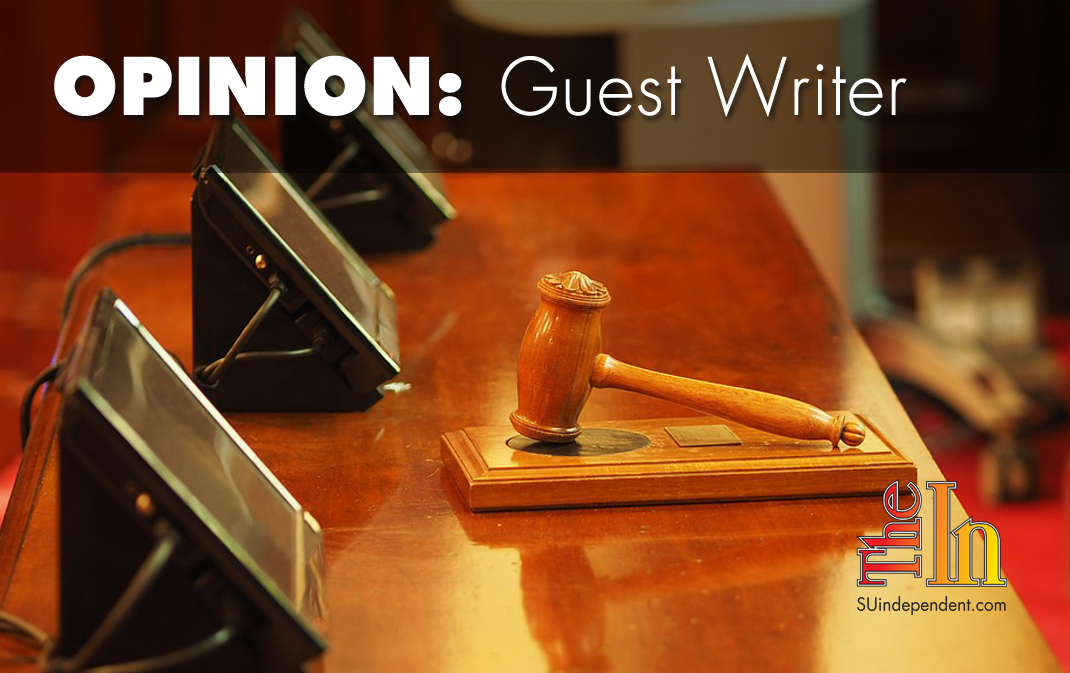 Who should review Michael Cohen’s files?
Who should review Michael Cohen’s files?
By Brett Max Kaufman
Since the search last week of the office, home, hotel room, and safe deposit box of Michael Cohen — President Trump’s personal attorney — lots of lawyers have been squaring off about an important legal issue that rarely gets banner-headline billing: How does the government armed with a warrant for a criminal suspect’s digital files go about sorting through those files in a way that ensures that constitutional and legal rights are not violated?
The risks of wrongful privacy invasions are too great to leave to the prosecutors when the government seizes digital data. Such files should be reviewed in the first instance by a neutral party, a “special master” appointed by and answerable to the court, to ensure that the prosecutors and investigators get the evidence they are authorized to look for. They should not be allowed to roam widely through digital files that may contain terabytes of private information.
Cohen has claimed that because he is an attorney, some of the seized files may be entirely off-limits to the government because they are protected by the attorney-client privilege. President Trump’s lawyers have made similar arguments. The government has countered that the court should allow a so-called “taint team” made up of prosecutors who are not assigned to the case and who are technically walled off from those working on the case to do the sorting. The court is now considering this question and is expected to rule quickly.
How the court decides this issue is not just of interest to Trump and Cohen but to everyone. As we continue our march into an ever-more-digital world, how the Fourth Amendment adapts to account for major changes in how we store our “papers” and other constitutionally protected materials will significantly shape our society’s notions of privacy, justice, fairness, and government power. These concerns are heightened when prosecutors and police can seize massive amounts of data — the equivalent of every file in your office, your photo albums, your diaries, your personal letters, the contents of your dresser drawers, and more — all at once.
The immense storage capacities of digital drives, computers, and phones mean that all of the information covered by a given warrant will reside alongside a great deal of other information that the government has no justification to have at all. This state of affairs creates a serious risk, as in any case involving the seizure of digital information, that the government might see files or other information that were never covered by the original warrant. Under the Fourth Amendment, a warrant must be based on two important elements: probable cause that evidence of a crime will be found, and particularity — the principle requiring a warrant to be tailored to the target of the search and the materials it is expected to yield. These constitutional requirements ensure that the government only takes what it has good reason to access.
When the government executes a search warrant, it sometimes stumbles into things it never anticipated finding. When such things are incriminating and are located in “plain view,” meaning that they are encountered by law enforcement during the reasonable execution of a lawful search, the government is entitled to seize them. While the “plain view” doctrine might make some sense when the search involves physical objects, searches of digital files present serious challenges to it. For example, the government can’t always search a hard drive for photographs without opening Microsoft Word documents since photographs could be saved inside such files. As a result, a full-blown “plain view” doctrine as applied to the search of a computer or smartphone could mean that even a narrow warrant for very particular items could end up allowing the government to search the whole computer or phone and seize anything incriminating it finds there.
The use of government-staffed “taint teams” to review the material would not solve this problem unless they are limited by specific court instructions. After all, such teams still work for the government. A special master — or, perhaps, a magistrate judge appointed by a neutral district court judge — would ensure that an independent party plays the role of filter and that the actual search is strictly limited by the bounds of the warrant.
At Monday’s hearing, Judge Kimba Wood explained that she has “faith in the Southern District U.S. Attorney’s office,” emphasizing that “their integrity is unimpeachable.” But how to manage searches of digital information, like any other evidence, is not a matter of expediency or any party’s good faith — it’s a matter of ensuring that the government complies with the Constitution.
Brett Max Kaufman is a staff attorney for the ACLU Center for Democracy.
Articles related to “Who should review Michael Cohen’s files?”
Why a recent federal appeals court ruling is relevant to the happenings at Dixie State University
Don’t let Congress give Trump a blank check to declare worldwide war




Would much rather have a team of lawyers, prosecutors, or judges reviewing this than a single master. One person is far more likely to make mistakes, have decisions reflect political and ideological biases, etc,
The judge, in any case, has authority over the process, the decisions of what is to be turned over can be appealed, etc.
Not so black-and-white or simple a choice as you make it out to be!